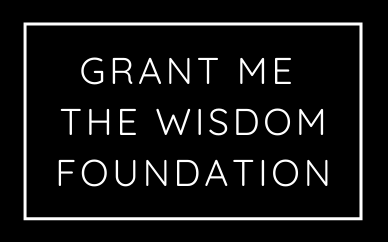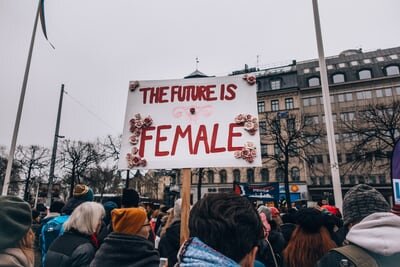The Three Waves of U.S. Feminism, Explained
The day I became a feminist was twenty-two years too late. For my entire adult life I had refused to self-identify as a feminist, refused to associate with the movement, and—I hate to admit it—actually required that the guys I dated believe it was their role to be the leader of our relationship. And I lived that way—that intelligence-restricting, wealth-evading, house-XXX way—for twenty. Two. Years. I truly don’t know how I’ve made it unscathed to this point. But in any case, at almost a quarter of a century I finally decided it was time to make the switch. I was going to be a feminist.
So what finally did me in, you ask? Well, it wasn’t the day I watched First Wives Club (although that certainly helped), and no, it wasn’t the day I heard one of Emma Watson’s electrifying speeches on gender equality (praise be).
But the day a professor at my university decided to spend an entire class period describing the three waves of feminism, I was hooked. Feminism suddenly made perfect sense, and my own personal exclusion from the movement suddenly didn’t.
So I decided to do the same thing for my readers out there, scant though they may be. Here is a brief, brief, brief, very brief summary of the three waves of the U.S. feminist movement.
FIRST WAVE (~1830’s to 1963)
Issues it addressed:
Women’s suffrage
Abolition of slavery
Women’s right to higher education
Women’s right to own property
Equitable marriage laws
Women’s right to religious leadership positions, especially in the clergy
Achievements of First Wave Feminism:
Married Women’s Property Act (1848)—granted married women the right to own and control property.
The 13th amenment (1865)—abolished slavery in the United States
The 19th amendment to the U.S. constitution (1920)—granted women the right to vote
SECOND WAVE (1963 to ~1980’s)
Issues it addressed:
Women’s right to higher education
Sexual harassment and workplace safety
Sexual discrimination
Women’s reproductive rights
Getting more women in positions of power in politics and higher education by dismantling the idea that a woman’s place is “in the home.”
Achievements of Second Wave Feminism:
The Equal Pay Act of 1963—the first federal law to address sex discrimination. Forbid private employers from offering women and men differing rates of pay for the same work.
Yale University and Princeton University allowed women to enroll (1969). After, other Ivy League institutions followed, with Columbia University admitting women as late as 1987.
Education amendments of 1972, Title IX—prohibited institutions receiving federal funds from discriminating on the basis of gender in educational programs.
Roe v. Wade (1973)—abortion was legalized
The Equal Credit Opportunity Act (1974)—banned discrimination in access to credit
THIRD WAVE (~1980’s to present)
Issues it addressed:
Intersectionality, or the intersection of race and gender (the motivation to uplift voices of minorities in the feminist movement, inlcuding women of color, women in the developing world, low income women, and the LGBTQ+ community)
Dismantling unrealistic beauty ideals and standards in the media
Reproductive rights
Pornography’s harmful transgressions against women
Achievements of Third Wave Feminism:
The outlaw of marital rape (1993)
The Me Too movement began (2006), fighting against sexual violence and sexual harrasment. The movement gained broader popularity in 2017.
Free the Nipple movement (2012) was a widespread campaign dedicated to normalizing women’s bodies, as opposed to sexualizing them.
The legalization of same-sex marriage in all 50 states (2015)
61% of women now describe themselves as feminist as of 2020, according to the Pew Research Center
NOTE: Many claim the Fourth Wave of feminism emerged in 2012 with a particular emphasis on dismantling rape culture, sexual harrasment, and body shaming. Many also believe the Fourth Wave of feminism is empowering women via online campaigns and internet-based movements. However, whether Fourth Wave feminism actually exists (versus its attachment to 3rd wave feminism) is still hotly debated by some.
Moriah Lee
Moriah Lee is the Content Creator and Social Media Manager for Grant Me The Wisdom Foundation. Her work has been featured in the Chicago Tribune, the New York Daily News, Yale Today, and Bestreviews.com. A recent graduate of Yale University, Moriah spends her newly-minted downtime hiking California’s golden hills and snuggling with her favorite black Lab, Brynn.

